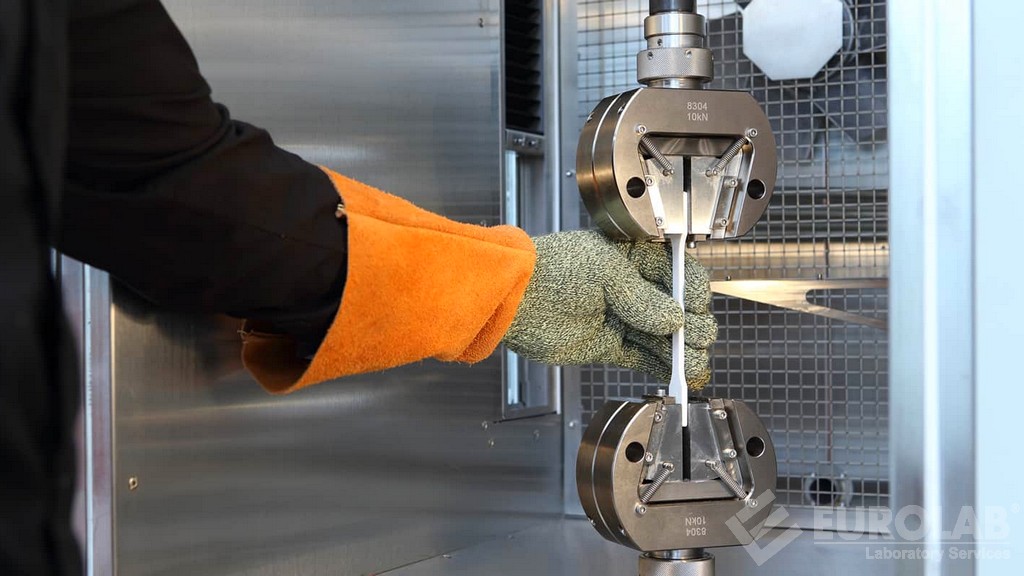ASTM D6304 Water Content of Chemical Additives Karl Fischer Test
The ASTM D6304 method is a critical analytical technique used to determine the water content in chemical additives, particularly those employed in oil and gas production processes. This test ensures that the integrity of chemical formulations is maintained throughout their lifecycle, from manufacturing to final application. Water contamination can lead to degradation or ineffectiveness of these additives, which are crucial for enhancing the performance of drilling fluids, cement slurries, and other downhole operations.
The Karl Fischer titration method forms the basis of this test. It involves using a reagent that reacts specifically with water molecules in a sample, allowing precise quantification of even trace amounts of moisture. This makes ASTM D6304 an indispensable tool for quality control processes within the oil and gas sector.
Before conducting the ASTM D6304 test, it is essential to prepare samples correctly. Typically, this involves dissolving the additive in a suitable solvent if solid form is provided. The sample should then be filtered to remove any particulates that could interfere with the titration process. Once prepared, the sample is injected into the Karl Fischer apparatus for analysis.
The instrumentation used in ASTM D6304 tests includes specialized titrators equipped with a Karl Fischer reagent delivery system and an electrode setup sensitive enough to detect infinitesimal quantities of water. The test proceeds by titrating the sample with the reagent until all available water is consumed, at which point the end-point is determined.
The results from ASTM D6304 tests are typically reported in percentage form, providing a clear indication of water content within the additive. This information is vital for ensuring that additives meet strict industry standards and perform optimally under various operational conditions.
Understanding the implications of varying water content is crucial for effective management of chemical additives in oil and gas operations. Even small amounts of water can have significant impacts on product stability, efficacy, and overall safety. By adhering to ASTM D6304 guidelines, laboratories ensure that additives are consistently within acceptable limits, supporting safer and more efficient production processes.
Implementing this test not only enhances the reliability of chemical additives but also contributes to broader operational efficiency in oil and gas facilities. It supports compliance with international standards such as ISO 9512-1:2018 for water content determination by Karl Fischer titration, thereby ensuring that products meet global quality benchmarks.
Quality and Reliability Assurance
The ASTM D6304 method plays a pivotal role in maintaining the high standards of quality assurance within the oil and gas industry. By accurately measuring water content in chemical additives, this test helps prevent potential performance issues that could arise from moisture contamination. This is particularly important for additives used in critical applications like drilling muds and cement slurries.
Quality control through ASTM D6304 ensures consistent product quality across different batches and suppliers, which is essential for the reliability of oil and gas operations. It helps identify any deviations from expected specifications early on, allowing for corrective actions to be taken promptly. This proactive approach not only enhances operational efficiency but also minimizes risks associated with substandard products.
In addition to maintaining product quality, ASTM D6304 supports compliance with regulatory requirements set by bodies such as the International Organization for Standardization (ISO) and American Society for Testing and Materials (ASTM). By adhering to these standards, laboratories demonstrate their commitment to delivering reliable results that meet international benchmarks.
The use of ASTM D6304 also fosters trust among stakeholders. Consistent application of this method across various entities ensures uniformity in testing practices, which is crucial for establishing credibility and reliability within the industry. This consistency helps build confidence both internally within organizations as well as externally with clients and regulatory authorities.
Environmental and Sustainability Contributions
The ASTM D6304 method contributes significantly to environmental sustainability by ensuring that chemical additives used in oil and gas operations are free from excessive water content. Water contamination can lead to increased corrosion rates, reduced effectiveness of additives, and higher energy consumption during processing.
By accurately measuring the water content using this test, laboratories can help minimize waste generation and optimize resource use throughout production processes. This not only reduces operational costs but also aligns with broader sustainability goals aimed at reducing environmental impact.
The precision offered by ASTM D6304 allows for optimal formulation of additives tailored to specific operational needs while minimizing unnecessary inputs that may lead to inefficiencies or adverse effects on the environment. For instance, knowing exactly how much water is present helps avoid over-addition of certain components which could otherwise degrade performance or cause pollution.
Adherence to ASTM D6304 also supports the development and implementation of eco-friendly practices within the industry. By ensuring that additives are free from excess moisture, laboratories contribute to creating more sustainable products and processes. This aligns with global initiatives focused on reducing carbon footprints and promoting cleaner technologies in energy sectors.
Use Cases and Application Examples
| Use Case | Description |
|---|---|
| Drilling Fluids | Ensure optimal fluid properties by checking water content in additives used to enhance drilling efficiency. |
| Cement Slurries | Prevent premature setting and ensure proper hydration of cement components through accurate moisture measurement. |
| Solids Control Agents | Verify the purity of solids control agents used in mud systems to enhance filtration efficiency. |
| Bentonite Clay Additives | Determine the water content affecting rheological properties and viscosity of drilling fluids. |
Hydraulic Fracturing Fluids: Ensuring precise control over additives to optimize fracture conductivity and minimize fluid loss during stimulation operations.
Treatment Chemicals: Guaranteeing that chemical treatments applied in reservoirs are not contaminated by water, thus maintaining their effectiveness.
Emulsion Stabilizers: Checking the integrity of emulsions used for transporting hydrocarbons safely through pipelines.





